Guest blogger and community activist Rochelle Jackson says everyone needs transportation options
January 13, 2022
January 13, 2022
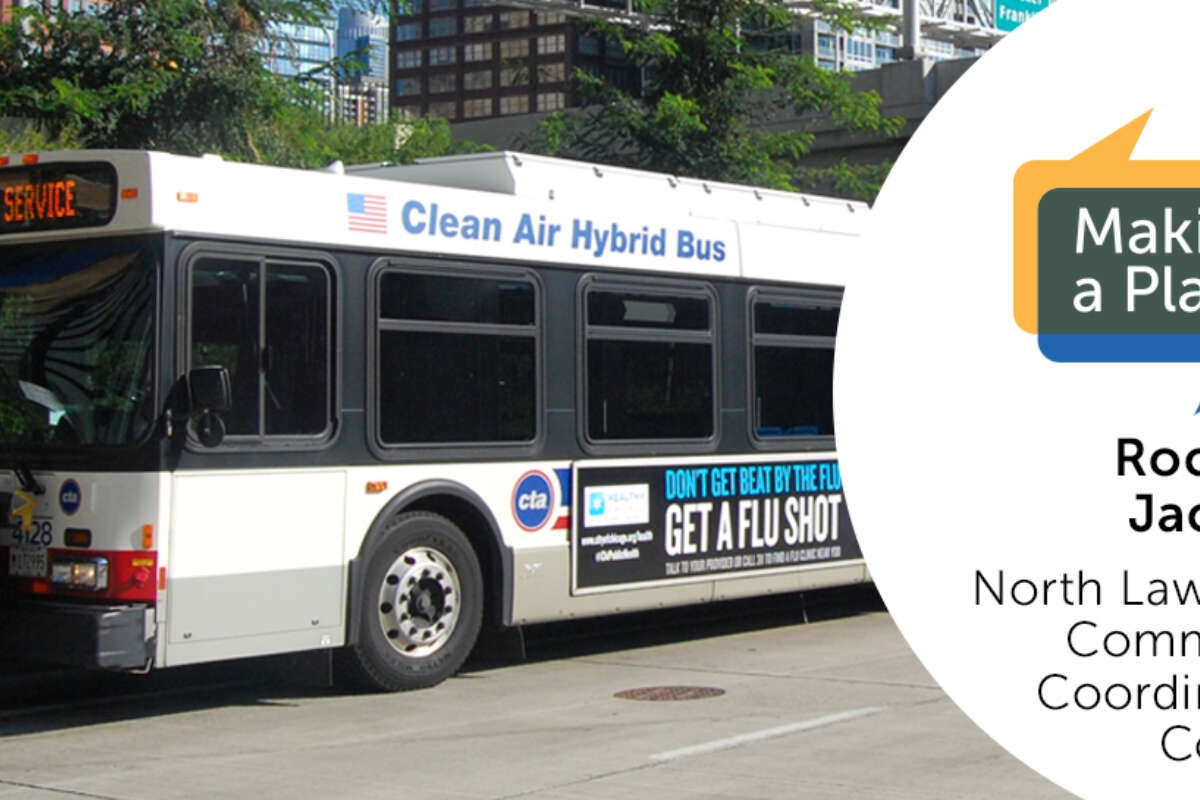
 The RTA is currently developing the 2023 Regional Transit Strategic Plan for Northeastern Illinois at a time when the challenges and opportunities facing our region’s transit system have never been greater. Making a Plan represents our effort to engage and collaborate with close stakeholders and the public. We have invited a group of transit users and thinkers to answer a set of questions for an occasional guest series on Connections, the RTA blog. The views represented in this series are not those of the RTA, but they are views we want to hear and have heard. If you have thoughts about this post, the strategic plan, or would like to participate by contributing a guest blog post, please email communications@rtachicago.org and subscribe to our newsletter to learn more.
The RTA is currently developing the 2023 Regional Transit Strategic Plan for Northeastern Illinois at a time when the challenges and opportunities facing our region’s transit system have never been greater. Making a Plan represents our effort to engage and collaborate with close stakeholders and the public. We have invited a group of transit users and thinkers to answer a set of questions for an occasional guest series on Connections, the RTA blog. The views represented in this series are not those of the RTA, but they are views we want to hear and have heard. If you have thoughts about this post, the strategic plan, or would like to participate by contributing a guest blog post, please email communications@rtachicago.org and subscribe to our newsletter to learn more.
Name: Rochelle Jackson
Organization: North Lawndale Community Coordinating Council (NLCCC)
Role: Chair, Transportation/Infrastructure Committee
Favorite transit mode, station, or line: Bus (157 Streeterville/Taylor Route) (Preferred Transit Mode)
Why are you passionate about transit?
I have always been passionate about public transportation. You can ride any bus in the city and learn about other communities. It should be considered the best way to get around the city of Chicago. It can be time consuming when you have to be somewhere on time, but it can be pleasurable when you just want to ride and enjoy the scenery of the city.
Mitigating the impacts of climate change, etc. What’s the biggest barrier to realizing these opportunities?
One of the biggest barriers that has an impact on climate change is ignoring the voices of reason that infrastructure should be made sustainable where it can last for years under the worst weather conditions. Year round construction all over the country adds to climate change, it doesn’t improve economic development, nor is it inclusive to people of color.
What future force of change has the greatest potential to transform or disrupt our region’s transit system?
Congestion is one of the most visible challenges that continue to hamper the transit system. Building wider roads doesn’t ease the pain, it just makes more room for congestion. Automating the entire system would destroy be the biggest disruption. You will always need boots on the ground and able to communicate with a real person.
Decades of underfunding have left the transit system in a constant state of austerity. What is the best measurement of the value that transit provides?
The best measurement of funding transit will come when transportation is available for the entire city. It will stop people from driving their cars every day and cut down on toxic gases and emissions. The air quality will return and we would all be able to breather better. Bring back the electric buses new and improved.
What are your ideas for building the political will to invest in transit?
They could start by giving up 5% of their annual budget or salary (choose one) to help build a better transit system that is equal across the entire city. Those funds could rebuild dismantled Blue Line train stops, and upgrade the other ones from Central to Western Ave. on the Westside (Garfield Park/North Lawndale). Restore the #16 Lake Bus Route on Lake Street. (Not everybody likes riding the Green Line). Westsiders are still upset about that one.
What is on priority action or strategy that the RTA should focus on to improve transit equity?
Stop cutting and dismantling bus routes and train stops/routes in low income communities whenever there is a budget crises. People would rather face a 25 cent fare hike than to lose a whole bus route or suffer service cuts on a route. The budget crises never seems to affect the more affluent neighborhoods, in fact I have seen bus routes created for those communities and the ridership was low, while at the same time services were cut or stopped completely in low income neighborhoods and public transportation was their only source of travel. Adding more time to their commute, people were forced to add extra routes to get to work, school or medical appointments because services were cut.
What can we learn from efforts to advance equity in other public spheres and apply to transit to make a tangible difference?
Collaborate with other city/state agencies to create better and safer infrastructure surrounding train and bus stops in low income communities the same way they are done in high income areas. Install and maintain better lighting, signage, pathways and crosswalks, shelters, etc.
Who do you think is missing from current conversations about mobility and policy issues? Who do you think is missing from the current conversations about mobility and transit? How can the RTA help grow the audience passionate about transit policy solutions?
Youth ages 14-21 should always be included in these conversations as they are the 2nd largest population to use public transportation to get to and from school. Share the history of public transportation and allow them to give their creative, innovative ideas of what’s missing, what can be changed and what can be improved. Be open to change policies that don’t work for workers or commuters alike. Seniors and people with disabilities should also be a part of these conversations for the same reasons.
Subscribe to our Newsletter
Related Articles
 New project management oversight report highlights more than 100 projects representing $8.2 billion in capital investments
New project management oversight report highlights more than 100 projects representing $8.2 billion in capital investments
The RTA’s Project Management Oversight (PMO) program ensures that the Service Boards—CTA, Metra, and Pace—are spending capital funds and managing their infra...
June 27, 2024 Transportation Tuesday recap: Improving and expanding the transit system strategically
Transportation Tuesday recap: Improving and expanding the transit system strategically
With last year’s adoption of Transit is the Answer came 15 new evaluation metrics that comprise a strategy for evaluating and selecting capital projects. Now...
May 30, 2024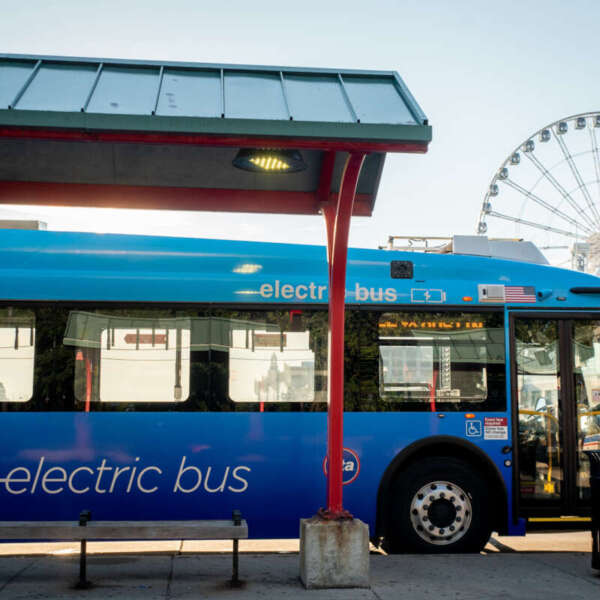 Transit is the answer to meeting Illinois’ climate goals
Transit is the answer to meeting Illinois’ climate goals
As we celebrate Earth Day 2024, the RTA is announcing Transforming Transit —the agency’s commitment to lead the Chicago region’s transit system into the futu...
April 18, 2024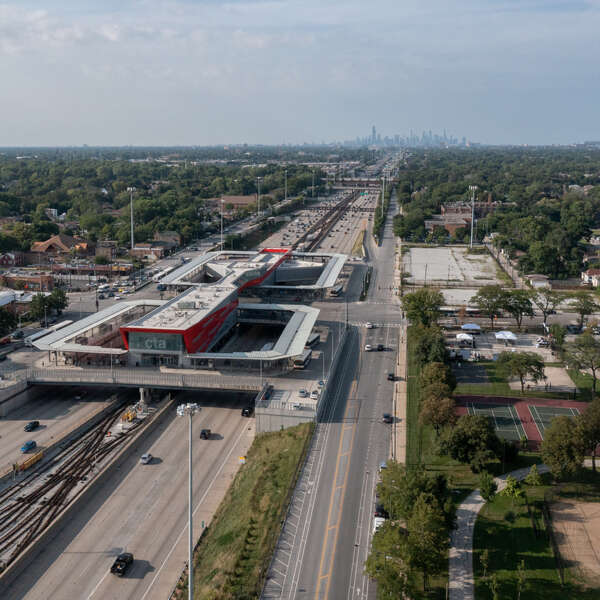 Three years into the Infrastructure Investment and Jobs Act, Chicago’s transit system is winning competitive grants and advancing critical projects
Three years into the Infrastructure Investment and Jobs Act, Chicago’s transit system is winning competitive grants and advancing critical projects
The Infrastructure Investment and Jobs Act (IIJA), passed in 2021, represented a historic level of federal investment for shoring up the nation’s infrastruct...
March 12, 2024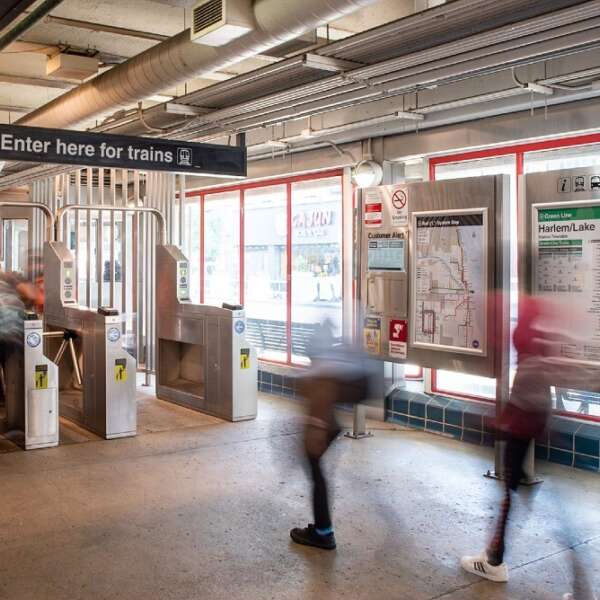 Why fully funding paratransit service and reduced fare programs is key to closing the transit budget gap
Why fully funding paratransit service and reduced fare programs is key to closing the transit budget gap
With transit facing a fiscal cliff in the coming years, fully funding critical programs like ADA paratransit service and free and reduced fare programs is on...
February 29, 2024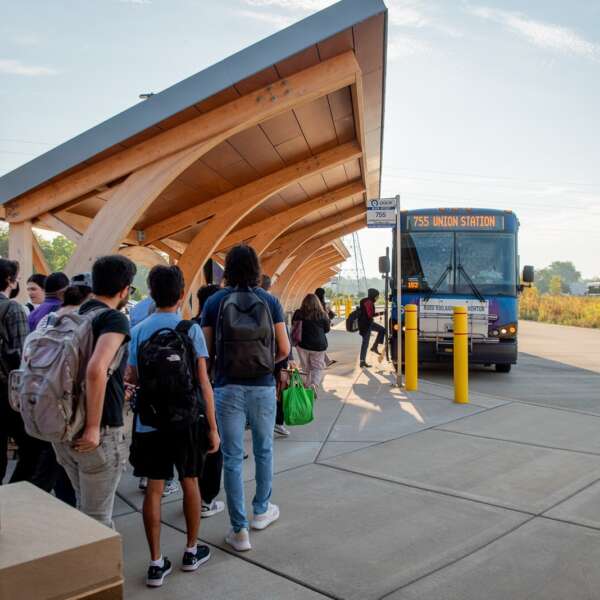 RTA releases semi-annual project management oversight report highlighting more than 100 capital projects
RTA releases semi-annual project management oversight report highlighting more than 100 capital projects
Under its Project Management Oversight (PMO) program, the RTA ensures that the Service Boards—CTA, Metra, and Pace—are spending capital funds and managing th...
January 3, 2024